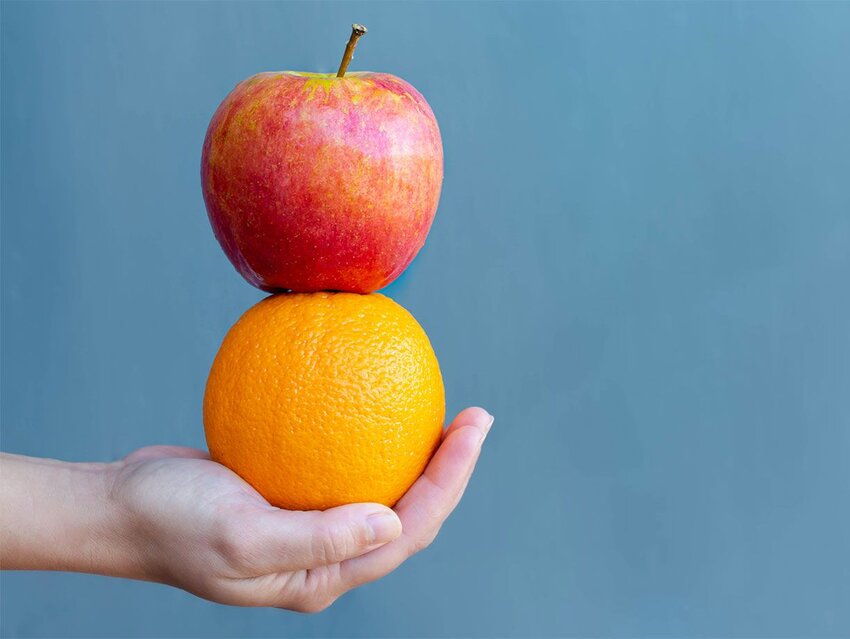Though we think of spelling as standardized, many English words have more than one accepted spelling. Sometimes it’s because dictionary writers decided on different spellings. Other times, it’s because one spelling falls out of favor over time.
Writing tip: Use one spelling consistently when there are multiple options. In other words, don’t describe a day “at the theater” in one sentence and “the doors to the theatre” in the following sentence. Instead, pick a spelling and stick with it throughout the piece.
Let’s take a look at some of the most common two-spelling-option words you might come across in your writing.
Axe / Ax
An “axe” or “ax” is a tool used for chopping wood. According to the Oxford English Dictionary, the spelling “ax” is “better on every ground of etymology, phonology, and analogy.” However, “axe” continues to be the more popular spelling in American and British English.
Doughnut / Donut
These small fried cakes made of sweetened dough are delicious no matter how they’re spelled. “Doughnut” is the original and older spelling. The name described the treat — it was made of dough, and it was a “nut” (a word for a small, round lump). “Donut” emerged as an alternate spelling around 1870. It caught on when Dunkin’ Donuts and other brands started to use the updated spelling.
Ketchup / Catsup
How do you like your Heinz 57? This condiment made from tomatoes and vinegar is the same whether it’s spelled “ketchup” or “catsup.” The origin is up for debate, but one of the earliest stories says the sauce was first made with fruits and spices in India and called “catchup,” which could be a version of the Tulu word kajipu. Cookbooks from the 1800s mostly used “catsup” to describe the recipes. However, by 1921, “ketchup” referred to the tomato-based version used liberally on burgers and fries today.
Likable / Likeable
Folks who are especially pleasant or friendly are “likable.” The spelling without the “e” is more common in American English. While “likeable” isn’t wrong, it’s more widely used in British English.
Opossum / Possum
The “opossum” is an American marsupial that “plays possum” or pretends to be dead to avoid predators. This animal can be called an “opossum” or a “possum”; however, a different Australian marsupial is called a “possum,” too. Since these are separate species, some folks think the American marsupial should only be called “opossum,” while the Australian version should be known as “possum.” Most dictionaries still list either spelling for the American opossum.
Racket / Racquet
In tennis, badminton, and squash, players use a type of bat called a “racket” — it’s distinguishable by a round, strung frame. The word “racquet” comes from the French rachette, meaning “racket for hitting; the palm of the hand.” Today, “racket” is the preferred spelling in most sports. “Racket” also means “a loud unpleasant noise.”
Theater / Theatre
If you’re attending a live performance, you’re enjoying a night at the “theater.” Or is it the “theatre”? The “-er” spelling is more common in American English, while the “-re” ending is typically British. This only caught on in the last century, though, so some American theater companies still use the British spelling in their names. Examples include the Richard Rodgers Theatre in New York and Ford’s Theatre in Washington, D.C.
Whiskey / Whisky
The word “whiskey” comes from a Gaelic phrase that means “water of life.” Sometime around the 19th century, the word acquired different spellings, depending on the drinking locale. So, you have “Scotch whisky” (Scotland) and “Yamazaki whisky” (Japan), but “Tennessee whiskey” (U.S.) and “Irish whiskey” (Ireland). Only grammar gurus and spirit enthusiasts might spot the difference.
Featured image credit: globalmoments/ iStock

